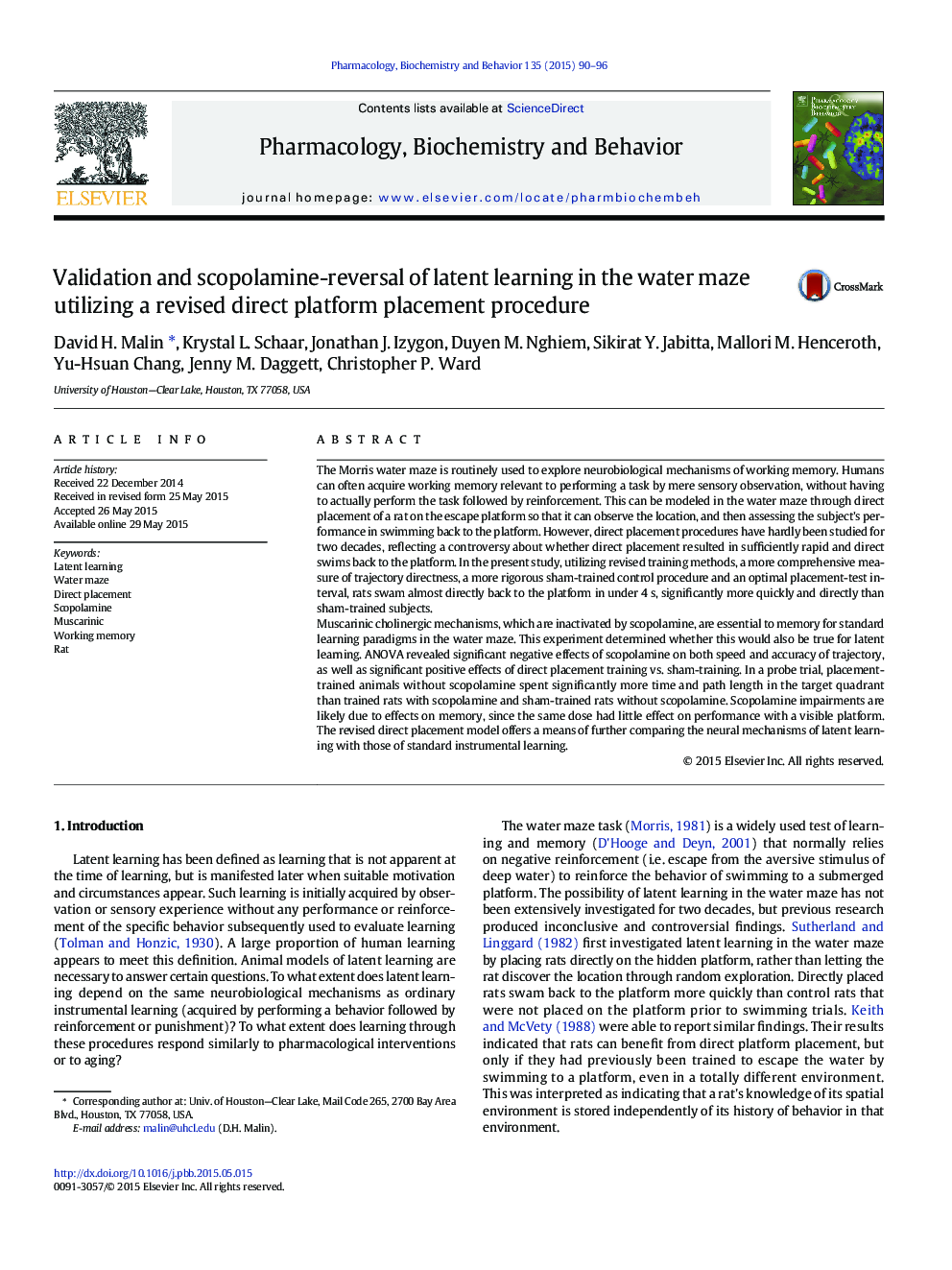| Article ID | Journal | Published Year | Pages | File Type |
|---|---|---|---|---|
| 8350468 | Pharmacology Biochemistry and Behavior | 2015 | 7 Pages |
Abstract
Muscarinic cholinergic mechanisms, which are inactivated by scopolamine, are essential to memory for standard learning paradigms in the water maze. This experiment determined whether this would also be true for latent learning. ANOVA revealed significant negative effects of scopolamine on both speed and accuracy of trajectory, as well as significant positive effects of direct placement training vs. sham-training. In a probe trial, placement-trained animals without scopolamine spent significantly more time and path length in the target quadrant than trained rats with scopolamine and sham-trained rats without scopolamine. Scopolamine impairments are likely due to effects on memory, since the same dose had little effect on performance with a visible platform. The revised direct placement model offers a means of further comparing the neural mechanisms of latent learning with those of standard instrumental learning.
Related Topics
Life Sciences
Biochemistry, Genetics and Molecular Biology
Biochemistry
Authors
David H. Malin, Krystal L. Schaar, Jonathan J. Izygon, Duyen M. Nghiem, Sikirat Y. Jabitta, Mallori M. Henceroth, Yu-Hsuan Chang, Jenny M. Daggett, Christopher P. Ward,
